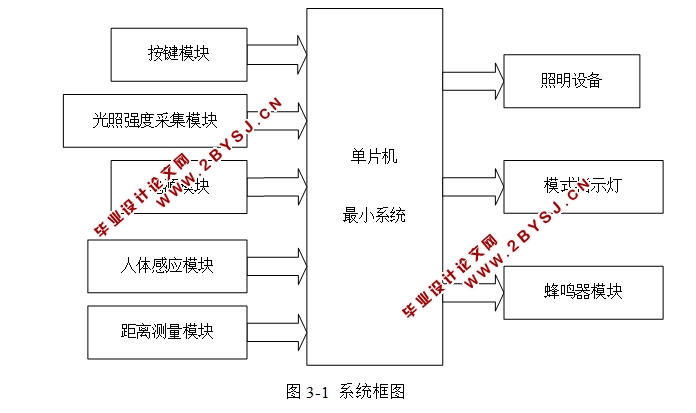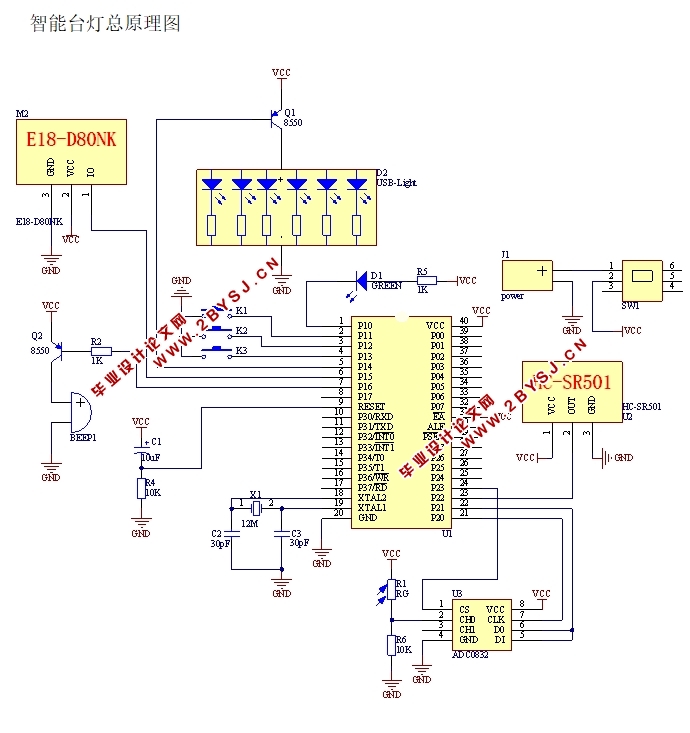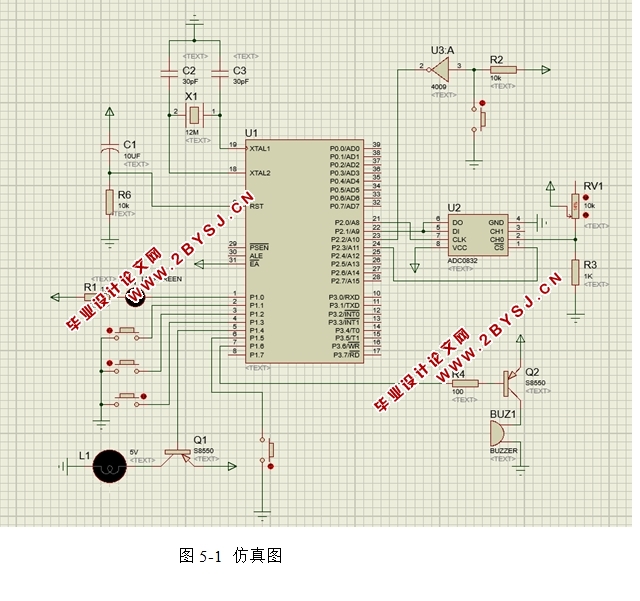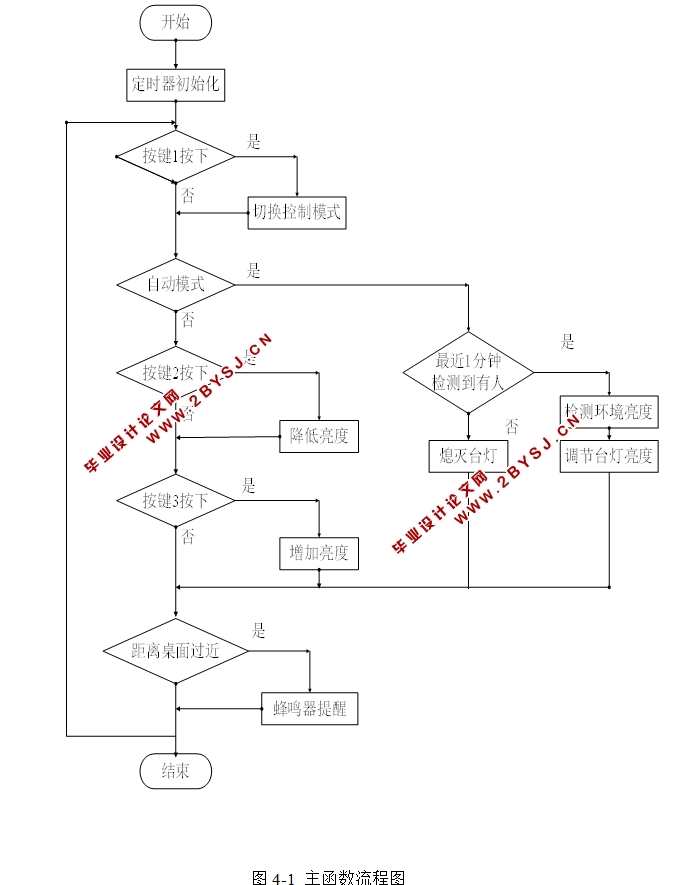基于单片机的智能台灯的设计(附总原理图)
无需注册登录,支付后按照提示操作即可获取该资料.
基于单片机的智能台灯的设计(附总原理图)(课题说明书,开题报告,中期检查表,论文7500字)
摘 要 当今世界开始走向智能化,节能环保的台灯,逐步走进了人们的家庭生活。本文介绍了基于脉冲宽度调制的智能台灯。此台灯能够起到纠正坐姿和防止近视的作用。当台灯检测到周围有人并且周围的光线较弱时,台灯会自动感应打开。当台灯无法感应到人时,台灯会等待一分钟,一分钟以后台灯熄灭。当人坐的离桌面太近时,蜂鸣器就会发出警告纠正坐姿,防止近视。该设计选用LED节能小灯,可达到绿色节能的效果。本设计具有手动控制模式,能够让人们根据实际情况通过按键调节台灯的亮度,同时,还具有距离检测功能,预防近视。
关键词 单片机; 台灯; PWM; 人体感应
Design of Intelligent Table Lamp Based on Single Chip Microcomputer
Abstract With the increasing development of electronic technology, energy-saving, green and environmental protection desk lamps have gradually entered people's lives.This paper introduces a design of intelligent desk lamp based on PWM dimming. The brightness of desk lamp can be adjusted by combining single chip computer technology with PWM dimming technology. When the human body is in the range of the table lamp and the ambient light is weak, the light is automatically induced to turn on, and the brightness of the lamp automatically adjusts with the change of the ambient light. Once the person leaves the range of the table lamp, that is, when the infrared pyrolysis sensor can not detect someone, the lamp will automatically turn off after 1 minute. When the human body is too close to the desktop, the buzzer will also warn to correct sitting posture and prevent myopia. This design achieves the effect of green energy saving by automatically adjusting the brightness and the switch of the human body test console lamp. At the same time, the anti-myopia distance detection and manual control mode are added. In the manual control mode, the brightness of the desk lamp is adjusted by keys.
Keywords Singlechip; Desk lamp; PWM; Human body induction
计要求
(1)熟习51单片机的集成开发环境;
(2)对于所选的单片机进行深入的了解,学会进行基本的软件和硬件的调试;
(3)自己独立完成单片机的最小系统构建,学会设计相关的硬件电路;
(4)了解智能台灯的工作原理,掌握其实现方法;
2.2 方案选择和论证
本次设计的采用单片机作为系统控制器,此方案相对于数字信号处理器作为系统控制器来说,具有以下优点:它在运算过程中效率较高,程序编写简单,灵活度高,它的功耗很低,具有体积小、计数成熟、成本低。虽然DSP成本低,低功耗,调试方便,具有高性能的处理能力。但是DSP的硬件电路比较复杂且昂贵。该数字系统由功耗较大的有源器件组成,没有无源器件可靠。因为单片机有以上的优点,所以单片机得到了专家的认可并且迅速的发展。所以根据以上的方案论证,在各类单片机中选择用STC89C52单片机作为系统控制器。




目 录
摘要及关键词 1
1 绪论 1
1.1 课题背景 1
1.2 台灯的发展现状 1
2 系统总体方案设计 2
2.1 设计要求 2
2.2 方案选择和论证 2
3 系统硬件设计 3
3.1 整体方案设计 3
3.2 最小系统模块 3
3.3 LED照明电路 5
3.4 光照强度采集电路 6
3.5 人体红外检测模块 7
3.6 距离检测模块 8
3.7 蜂鸣器模块 9
3.8 按键输入模块 9
4 软件设计 10
4.1 程序流程图设计 10
4.2 模数转换程序设计 11
4.3 PWM调光程序设计 12
5 调试与仿真 12
6 结论 13
参考文献 14
致谢 16
附录 17
